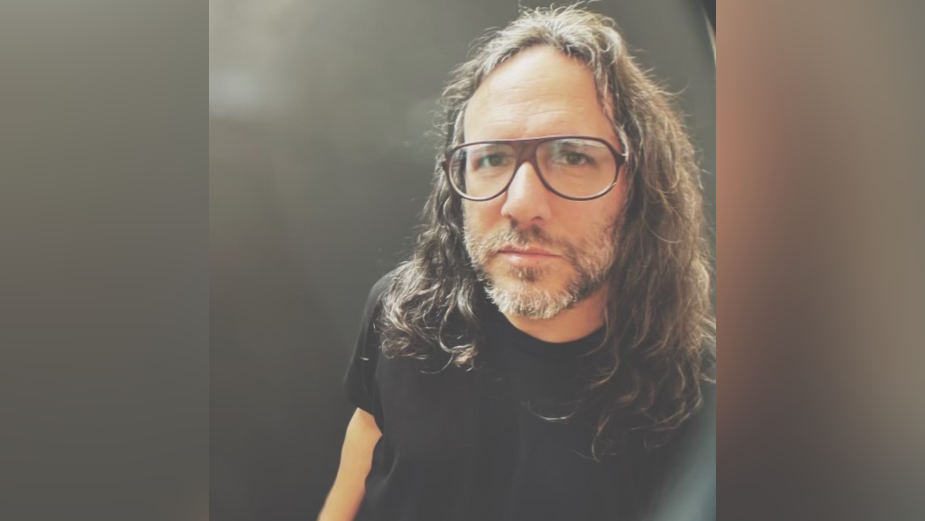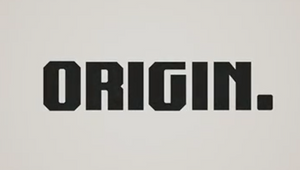
Thinking in Sound: The Value in Crafting Music Solo with Mitch Davis

Mitch Davis is the co-owner and composer/producer at Pull (a music company) and a Universal Music Group artist and producer.
LBB> When you’re working on a new brief or project, what’s your typical starting point?
Mitch> You are obviously talking about working on a commissioned project since you mention a brief… when I work on my own music, it’s very simple as I just do whatever I feel like doing. But working with clients is a bit different, of course… the goal is to create sounds that you think are good while also being what the client is looking for. The first steps are to discuss what they are imagining the music to sound like. That may be a feeling, pacing, general instrumentation, a genre… anything that helps them get their idea across. The product you are creating for also tells you a lot about what the music should sound like. Is it a techy gadget? Is it a trusted product that’s been around for years? Is it a children’s toy? We’d discuss what emotion they want to get across with the music…. Are there any specific points in the visuals they want to hit? Etc.
I’ll tell them what my first impressions are of what I imagined the music would sound like. That may give them some ideas they hadn’t thought of on their own. In the end, it’s the music they envision. They naturally come to Pull because they like stuff we’ve done on the past and because they like some aesthetic we bring. So it’s all filtered through that lens, so to speak, but we work together towards a final piece of music will be as close to the music they are hearing in their head as possible.
LBB> How do you break it down and how do you like to generate your ideas or response?
Mitch> You can discuss music all you want, but the best way to get your ideas across is to just start working. Start developing some ideas and see what is working and what isn’t. Then it’s the process of refining and creating until it’s all there.
LBB> Music and sound are in some ways the most collaborative and interactive forms of creativity - what are your thoughts on this?
Mitch> I think there is value to creating music solo as well as creating in a collaborative way. All that matters when all is said and done is what is on 'the tape' regardless of how you get there. When you are working to picture, there is no way but to be collaborative. It’s a group effort by nature, and on this case it’s my job to help you to tell your story.
LBB> Do you prefer to work solo or with a gang - and what are some of your most memorable professional collaborations?
Mitch> I like working both ways for their own creative reasons. Working solo lets me purely express my own creative visions working in a group pushes one in different directions than I would have gone on my own. Some of my most memorable collaborations are those where I got to work with my musical heroes.
LBB> What’s the most satisfying part of your job and why?
Mitch> The most satisfying part of my job is just finishing a piece of music that everybody is happy with. It’s all pretty satisfying because this is what I’d do for fun of it weren’t also my job.
LBB> As the advertising industry changes, how do you think the role of music and sound is changing with it?
Mitch> I don’t think the role is changing, but there are always new places where music fits into the world thanks to new technological innovations. Music is something that’s all around us, whether it be for its own purposes or to support some other experience. The trick is to implement it in a way that makes people want to turn it up, rather than turn it off.
LBB> Who are your musical or audio heroes and why?
Mitch> Ahh, there are way too many to even mention.
LBB> And when it comes to your particular field, whether sound design or composing, are there any particular ideas or pioneers that you go back to frequently or who really influence your thinking about the work you do?
Mitch> I don’t know if I’d say there are any specific 'pioneers' I refer to. It’s more about bits you pick up here and there and figure out along the way. But an 'idea' I live by is that the perfection is in the imperfection. Don’t get caught up in what is perceived as 'correct' when you can just create.
LBB> When you’re working on something that isn’t directly sound design or music (lets say going through client briefs or answering emails) - are you the sort of person who needs music and noise in the background or is that completely distracting to you?
Mitch> I don’t find 'background noise' distracting, but it’s not something I 'need'. Everything really has its own background noise without needing to supply it with a soundtrack. Even silence is background noise. Complete silence is never actually complete silence. And a 'score' for a situation is as much about the spaces between the noise as it is about the noise itself. The world is never without 'background noise'.
LBB> What are your thoughts on ‘background’ sound and music as you work?
Mitch> I can’t really have music on in the background while I work since my work is recording music.
LBB> I guess the quality of the listening experience and the context that audiences listen to music/sound in has changed over the years. There’s the switch from analogue to digital and now we seem to be divided between bad-ass surround-sound immersive experiences and on-the-go, low quality sound (often the audio is competing with a million other distractions) - how does that factor into how you approach your work?
Mitch> It doesn’t factor in at all. There is no wrong way to listen to music. In fact, I don’t think the 'quality of the listening experience' has changed at all. There are different mediums through which music is distributed, but the quality is really no better or worse. There have always been different levels of quality in the listening experience. If anything, the worst quality way to listen to music today is better than the worst quality way people listened to music in the '70s, '80s, whenever. I’d say the quality of listening to music streaming on my phone through standard Apple earbuds is better than the quality of listening to a cheap Walkman style knockoff with those foam covered earphones held together by a flexible bendy metal strip… and have you tried listening to music through an old pair of those clunky headphones from the '60s? Even the worst listening experience is better than a mid level experience from the past! And if you want to go for audiophile quality, it’s there if you want it and probably more accessible now than ever.
LBB> On a typical day, what does your ‘listening diet’ look like?
Mitch> I’m usually listening through as much new stuff that’s coming out as I can. I like to hear what new stuff people come up with and how the old and the new interact. I do listen to old favourites as well, but I’m more often looking to be surprised by new sounds.
LBB> Do you have a collection of music/sounds and what shape does it take (are you a vinyl nerd, do you have hard drives full of random bird sounds, are you a hyper-organised spotify-er…)?
Mitch> As time goes on, I find myself collecting less and listening more broadly. That being said, if I do purchase any music, it’s on vinyl… but as a listener I’m not picky.
LBB> Outside of the music and sound world, what sort of art or topics really excite you and do you ever relate that back to music (e.g. history buffs who love music that can help you travel through time, gamers who love interactive sound design… I mean it really could be anything!!)
Mitch> For me, it probably more of a situation of imparting my musical aesthetic and process onto other things. Whether it be visual works, cooking, interior design, etc, I build these other things in the same way as I’d build the layers and arrangement of a piece of music. Music is essentially my first language, and everything other language I speak is translated from that, through that lexicon.
LBB> As we age, our ears change physically and our tastes evolve too, and life changes mean we don’t get to engage in our passions in the same intensity as in our youth - how has your relationship with sound and music changed over the years?
Mitch> As a music professional (who’s passion, like every music professional I’d suppose, is music) I’m able to engage in that passion for music with more intensity than when I was younger… as I kid, I had to divide my time with school… as I approached adulthood, I would be spending time going out at night… but with every passing day, I can focus more on music. And with technology of today, I can engage in music endeavours more easily and frequently and accomplish more on the same amount of time. And as time goes on, my skills improve which allows me to do it even more easily and effectively. I’m always learning more and always improving, but it all becomes more a part of me as time progresses.















